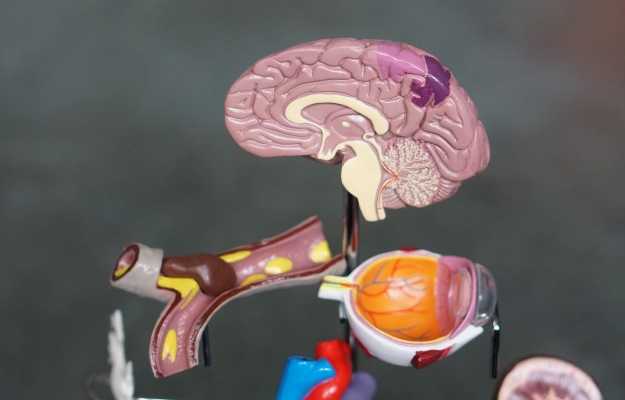Alzheimer’s disease is a neurodegenerative disease in which brain cells die due to the accumulation of two types of proteins—tau and amyloids proteins which form tangles and plaque, respectively, in the brain.
Now, researchers at the Tokyo Metropolitan University in Japan say they have figured out a mechanism that triggers the clumping and deposition of tau proteins in the brain: a genetic mutation in an enzyme called MARK4 which changes tau protein in such a way that they become less soluble and more likely to clump together.
Their research was published on 5 October 2020 in The Journal of Biological Chemistry.
According to the Global Burden of Disease Study 1990-2016, 40-50 million people worldwide have dementia as of 2016. Alzheimer’s is the most common cause of dementia among older people. So far, there is no cure for Alzheimer’s though doctors can prescribe medicines to manage the symptoms of the disease.
Alzheimer's is most commonly associated with memory loss. But as brain cells die, the condition can also affect other cognitive functions and bring about changes in the patient's behaviour and personality.
Researchers all over the world are urgently looking for the cause of Alzheimer’s, as understanding the cause could help to control and even—one day—cure the disease.
To be sure, the researchers at Tokyo Metropolitan University are not alone in their search for answers to what causes Alzheimer’s.
In July 2020, researchers at The Chinese University of Hong Kong (CUHK) published a paper in the Journal of Physiology. Their research suggested that “misfolded” beta-amyloid proteins might travel from the gut to the brain, and cause Alzheimer’s.
In an animal study, the researchers at CUKH injected beta-amyloid proteins into the guts of mice, and a year later, they found these same proteins in parts of the brain including the hippocampus. The mice also suffered cognitive decline according to the researchers, who urged that the findings should be confirmed by looking for signs of inflammation in the guts as well as brains of Alzheimer’s patients during postmortem.
The CUHK researchers argued that if part of the cause of Alzheimer’s is “environmental”, meaning that something outside the brain is causing it, then there could be a way to stop these proteins from reaching the brain.
The new research
Normally, tau proteins are an important component of the structure of our cells. Microtubule affinity regulating kinase 4 or MARK4 enzyme helps to build, disassemble and rebuild the microtubules or arms of the cells by allowing tau proteins to detach from the cell structure.
The Tokyo Metropolitan University research team led by associate professor Kanae Ando found that a specific mutation in the gene responsible for making MARK4 in the body can lead to changes in tau proteins which, in turn, can cause abnormal misfolding of tau proteins in a way that makes them more clumpy and less soluble in detergent.
The team did their studies with transgenic drosophila fruit flies—these flies are often used in lab studies as they can be genetically modified (transgenic). The transgenic drosophila fruit flies were artificially given a mutant form of MARK4. The result: changes in tau protein to create what the researchers called “a pathological form of tau”.
The researchers hoped that the findings might help in the eventual treatment of Alzheimer’s and other diseases where MARK4 is suspected. Grants from the Hoan-sha Foundation, the Takeda Science Foundation, the Japan Foundation for Aging and Health, and the National Center for Geriatrics and Gerontology, Japan, supported the study.











